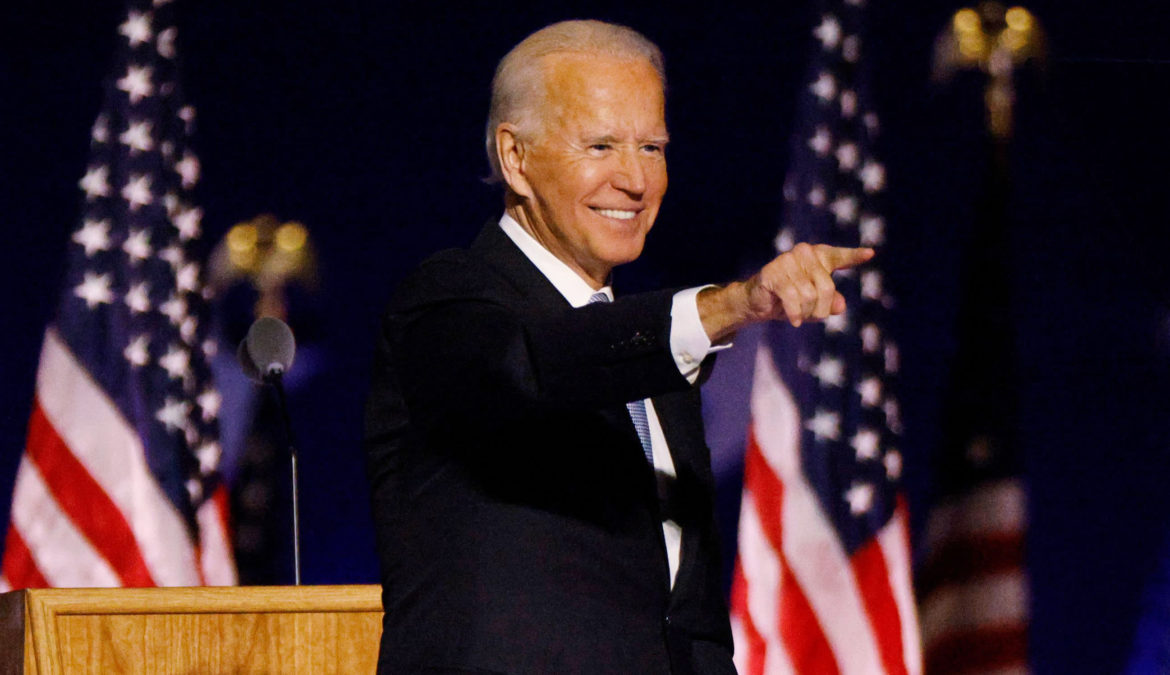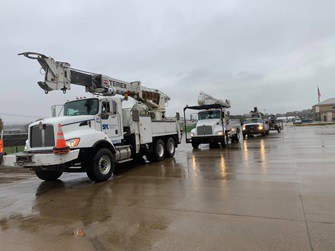Joe Biden’s victory in the presidential race sets the stage for the former vice president to implement sweeping environmental policy changes. But his planned agenda will likely be muted by what now looks to be a divided Congress, with a Republican-led Senate and a diminished Democratic majority in the House.
In the near term, Biden is expected to push for a broad economic stimulus plan shortly after he takes office in January, presenting opportunities for NRECA to secure more pandemic relief for co-ops and their consumer-members.
“Vice President Biden has been clear that the two most important things facing our country are health care, especially related to the pandemic, and the economy. We agree,” said NRECA CEO Jim Matheson. “We are focused on supporting our members in the development of the next COVID relief package, including RUS loan refinancing, shortfalls caused by nonpayment of bills and protecting those consumer-members who are least able to pay their bills.”
Senate Majority Leader Mitch McConnell, R-Ky., said he wants to move another economic stimulus package before the end of the year.
Matheson said NRECA will work with bipartisan champions in Congress to pass the Flexible Financing for Rural America Act, which could save co-ops more than $10 billion by allowing them to reprice loans from the Rural Utilities Service at current low interest rates. The bill would waive any prepayment penalties normally associated with refinancing.
“Our priorities remain the same: to protect the interests of America’s electric cooperatives and to ensure government doesn’t get in the way of affordable, reliable power,” he said.
Over the longer term, electric co-ops will work to shape a $2 trillion plan Biden campaigned on that would eliminate carbon dioxide emissions from the electric power sector by 2035 and replace fossil fuels with zero-emission sources such as wind, solar, nuclear, hydropower and biomass. The divided Congress could affect how aggressively the incoming administration pursues these goals.
“The vice president has put forward principles, but the details really matter,” said Louis Finkel, NRECA’s senior vice president for government affairs. “And as those details emerge, we will evaluate them based on the tenets of affordability, reliability and resiliency.”
Biden has also touted the need to pass a comprehensive infrastructure spending bill to rebuild the nation’s aging highways and bridges and invest in public transportation and electric vehicle charging stations. He is pushing for rural broadband deployment as part of that plan.
“Our long-standing approach—to work in a bipartisan fashion with lawmakers—is going to continue to be important,” Matheson said. “Regardless of who is in control of the Congress, we feel good about the champions that we’ve worked with on both sides of the aisle. No piece of legislation we’ve ever championed has been partisan, and we will continue to work with Republicans and Democrats alike.”
By Erin Kelly, NRECA



